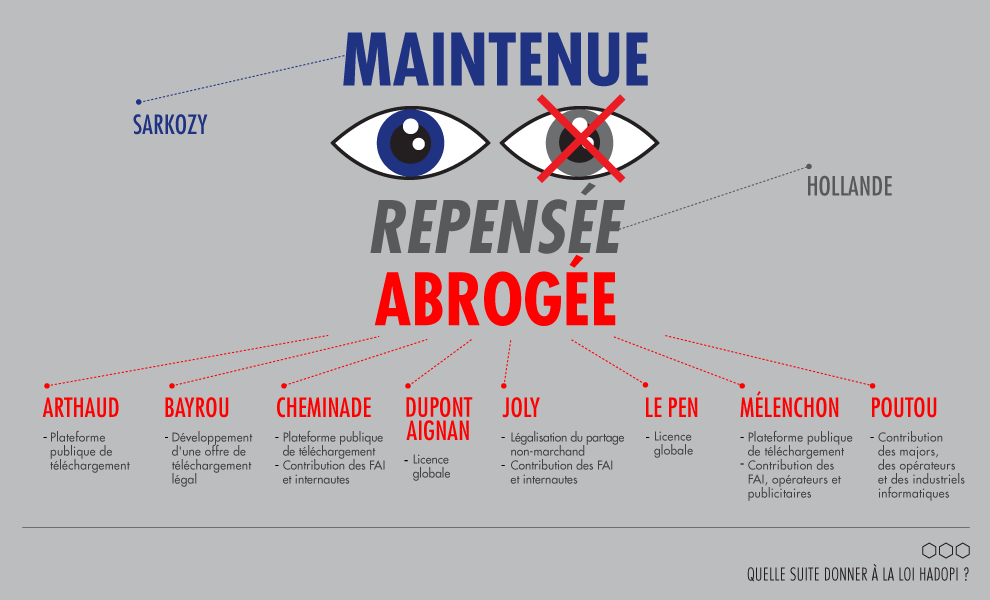Hadopi: where do the candidates stand?
By Aurelien Breeden
Hadopi was one of French president Nicolas Sarkozy’s most criticized creations but its very existence is now threathed with the upcoming elections.
The acronym stands for Haute Autorité pour la Diffusion des Oeuvres et la Protection des droits sur Internet, i.e. the High Authority for the Diffusion of Works and the Protection of Rights on the Internet. Instated by law in 2009 and set up in 2010, Hadopi is an administrative body aimed at fighting online piracy and illegal downloading. Following a so-called “three strikes” policy, it has the power to warn users and even suspend their Internet access for up to a year. Individuals can be charged for failing to secure their Internet connection and have to continue paying their subscription during the suspension (Vanity Fair, of all publications, has a more detailed explanation here). See below for the type of warning letter that is sent.
Hadopi came under heavy criticism two years ago, and is still decried as a costly and inefficient body. For opponents of Nicolas Sarkozy it became yet another symbol of disregard for civil liberties and repressive policies, even though the initial plan to bypass judges for the suspension of Internet connections was dropped in the final draft. It also became a symbol of political spheres disconnected from the realities and practices of the world wide web today. Critics scoffed at the first ad campaign (see video below), which suggested Hadopi was protecting the small, emerging talents of tomorrow even though the legislation was pushed through by big film and music industry lobbies. Hadopi also looked foolish when it was revealed the initial logo violated copyright.
As a result, any serious challenger to Nicolas Sarkozy has had to position his or herself on the matter, despite the absence of a general debate on digital topics. Where do they stand today?
Nicolas Sarkozy isn’t backing down and wants to keep Hadopi, even going as far as to propose giving it powers to strike down streaming. Even the agency itself doing self-promotion for the campaign. Last week it released an optimistic report on the decrease of illegal peer-to-peer file exchanges, which still failed to convince digital actors. François Hollande recently revealed his plan for replacing Hadopi by a new law, the details of which still aren’t clear.
For the positions of all the candidates, check out the graph below (CC/by-nd), that if found here.)
(Maintenue = maintained, repensée = rethought, abrogée = abolished)




0 Comments
Post new comment